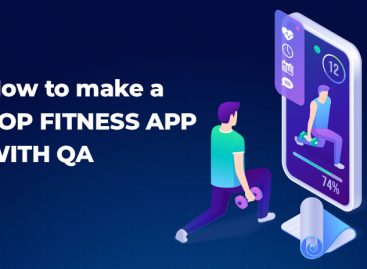- QATestLab Blog >
- Mobile Testing >
- Why mobile apps fail
Note: the article was updated in September 2020.
Why do people create apps? To become rich like Evan Spiegel and wed Miranda Kerr. Any other reasons? Probably, some of them envision a truly special product that would somehow make things easier for the user.
Regardless of the purpose, we want our projects to be successful. Unfortunately, money and reputation do not come with a wave of a magic wand. Ideas fail sometimes. Why?
Some people say you should learn from your mistakes. We suggest checking out this article first.
Common Reasons Why Mobile Apps Fail
While even a minor defect can become that last straw that breaks the camel’s back, there are thousands of possible reasons able to knock out the product’s chances to succeed with one punch.
For example, the lack of in-depth market research. It is one of the critical problems for newbie entrepreneurs as they easily get too carried away with their business idea and forget to test its viability first.
… or bad user experience. If the user struggles to perform basic operations and cannot easily figure out the main functionalities, it is probably because of poor usability and not a too sophisticated artistic conception.
Mobile app owners often cannot properly monetize their apps. It is a crying shame because they can leverage as many monetization models as their development budget supports.
Finally, in the world, oversaturated with a gazillion of apps, the lack of proper marketing can bring down even the most innovative application.
… wait, there is one more thing we did not mention. QUALITY. Of course, quality issues due to insufficient testing, in our humble opinion, are the major reason why mobile applications fail.
Therefore, without further ado, let’s clarify the importance of software testing.
Why Ignoring QA Is Too Risky for Your App
The software needs to be tested to make sure it is reliable and performant. Otherwise, the list of possible risks may include the following:
- Poor functionality that undermines customer loyalty and leads to dozens of negative reviews;
- Bad usability that leaves users irritated and affects app functionality;
- Inability to operate on various browsers, platforms, and devices that significantly dwindle your target audience and reduce profitability;
- Security issues that destroy the app’s reputation when the user, who has just purchased the premium membership package, is not able to log in anymore.
As we can see, building a scalable, user-friendly application accessible across all platforms is possible only with an end-to-end testing strategy introduced into the development process.
What Mobile App Testing Involves
There are many types of mobile testing. Each of them aims to examine particular aspects of the product and requires specific testing tools, frameworks, and competencies. Let’s take a closer look at some of them.
- Functional testing involves an all-embracing examination of the app’s functionalities and their strict conformity to the requirements specification.
- Performance testing determines the stability, operability, and resource consumption of the system under various loads.
- Usability testing is indispensable to make sure that the app has an intuitive interface and offers an enjoyable user experience.
- Compatibility testing verifies that the app can be used on various devices and platforms. It also involves device configuration, cross-browser, database, and network configuration testing.
- Localization testing verifies whether the app has been properly adapted to meet the cultural characteristics of the target market.
- Security testing evaluates risks of data leakage and reveals possible gaps that hackers could exploit for unauthorized access to sensitive information.
Mobile application testing can be performed on real devices, emulators, simulators, or cloud-based technologies. Moreover, mobile test automation is among the hottest industry trends right now. Therefore, access to a modern resource base and the latest tech advancements is fundamental to performing high-quality tests. Seems like it is time to call an experienced QA engineer and make an urgent appointment!
Conclusion
Why do mobile apps fail? Because of their creators. Those people who do not manage to conduct proper market research, develop a winning marketing strategy, or ensure the quality that is crucial for users.
Be the responsible one. Test your product. It is the only way to make your app a success.
Learn more from QATestLab
Related Posts:
- Decoding the Science of Software Testing for Hardware
- Why do Exist Plenty of Conditions for Mobile Testing?
- Importance of First Impression of Mobile Software
About Article Author
view more articles
has 3-year experince in content managing, skills of copyediting and proofreading of web content and documentation
View More Articles







